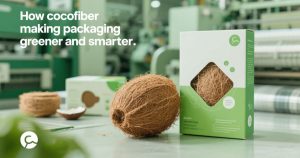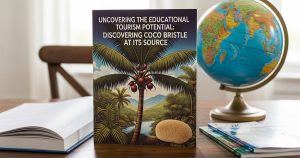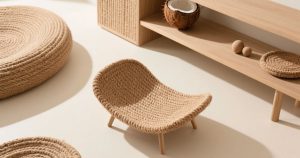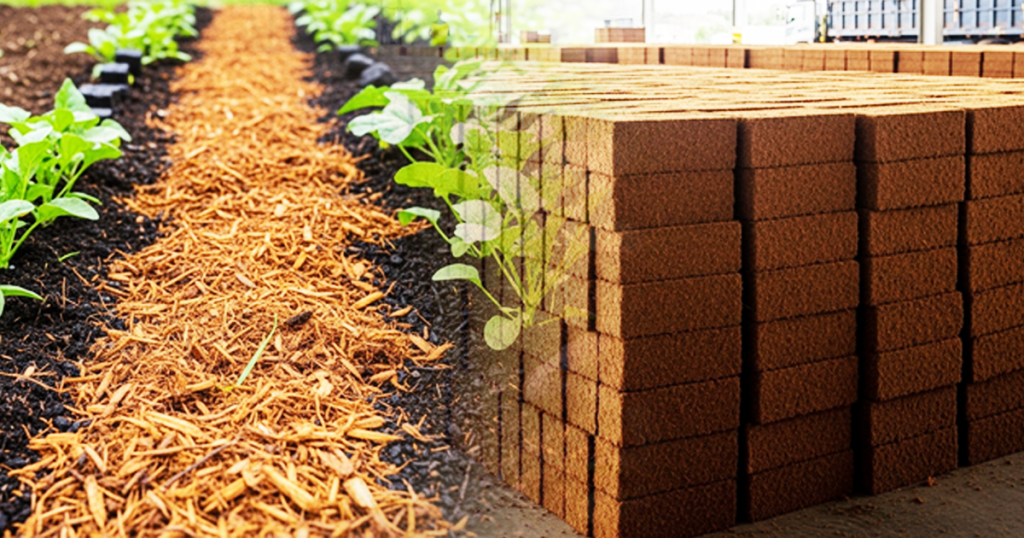Rethinking Bristle Products in the Age of Sustainability
In recent years, ethical consumerism has reshaped how we evaluate household products, particularly those involving animal-derived materials. Among these, traditional bristle brushes commonly made from boar or horsehair are facing increasing scrutiny.
The rise of plant-based alternatives has created opportunities to rethink our material choices, both ethically and environmentally.
As a researcher in the field of cocopeat and its byproducts, I have investigated one promising substitute: coco bristle. Derived from coconut husks, coco bristle represents a renewable, biodegradable, and vegan-friendly solution.
The demand for cruelty-free and plant-based alternatives has grown steadily among eco-conscious consumers. With increased access to natural fiber technology and coconut-processing innovation, industries now have the tools to meet this demand.
The global coconut industry produces billions of husks annually, yet much of it remains underutilized. Transforming this waste into functional products like brushes and brooms through sustainable processing adds both economic and ecological value.
Understanding Coco Bristle: Composition and Performance
The Science Behind the Fiber
Coco bristle is extracted from the mesocarp of the coconut husk, specifically the tough outer layer that surrounds the seed. Once retted and combed, these fibers exhibit unique mechanical properties.
They are naturally coarse, rigid, and resistant to fungal growth, making them ideal for applications that require abrasion resistance. This fiber, when processed with eco-friendly techniques such as dry or wet milling, retains its tensile strength while remaining biodegradable.
Unlike synthetic alternatives such as nylon, which contribute to microplastic pollution, coco bristle decomposes naturally. Furthermore, compared to animal bristles, it avoids the ethical implications of livestock exploitation.
Laboratory tests have shown coco bristle to maintain its structural integrity over repeated use in dry and wet conditions, matching or exceeding the performance of traditional materials. It also exhibits high thermal stability, an asset in both domestic and industrial cleaning tools.
Ethical and Environmental Implications of Coco Bristle
Cruelty-Free and Culturally Inclusive
From an ethical standpoint, coco bristle addresses several concerns associated with animal-derived bristles. Traditional brush industries often rely on practices that involve animal cruelty or disregard for animal welfare.
By eliminating animals from the equation, coco bristle aligns with vegan principles and religious restrictions found in various cultural contexts. This makes it a highly inclusive material, accessible across faith-based and ethical lifestyle choices.
Moreover, the use of coco bristle contributes to the circular economy. Coconuts are already harvested for water, meat, and oil leaving husks as waste.
Utilizing this byproduct reduces landfill accumulation and provides additional revenue streams for coconut-farming communities, especially in South and Southeast Asia. This model promotes not just sustainability but also rural economic resilience.
Market Trends and Future Applications
Industrial Potential and Consumer Shifts
As green technology gains traction, manufacturers are gradually integrating natural fibers into mainstream production. Companies in Europe and North America are piloting coco bristle in products ranging from dish brushes to shoe cleaners and even industrial scrubbers.
In emerging markets, local startups have introduced fully biodegradable homecare products using coco bristle, targeting both urban and rural consumers.
Data from recent market analyses suggest a 15% year-on-year growth in demand for vegan-certified household goods. This includes cleaning tools, personal care brushes, and grooming products.
Coco bristle’s ability to meet this demand while aligning with broader climate goals places it at a strategic advantage in the coming years. Innovation in fiber treatment and product design will only expand its viability across different industries.
Conclusion: Coco Bristle as a Material for the Future
As a material scientist and sustainability advocate, I find coco bristle to be more than a trend it is a solution rooted in nature, science, and ethics. By transforming agricultural waste into durable, plant-based alternatives, we reduce environmental burden while respecting life in all forms.
Coco bristle represents not just a substitute but a step forward in rethinking how materials serve both function and values. The shift is already underway; now it’s about scale and awareness.







